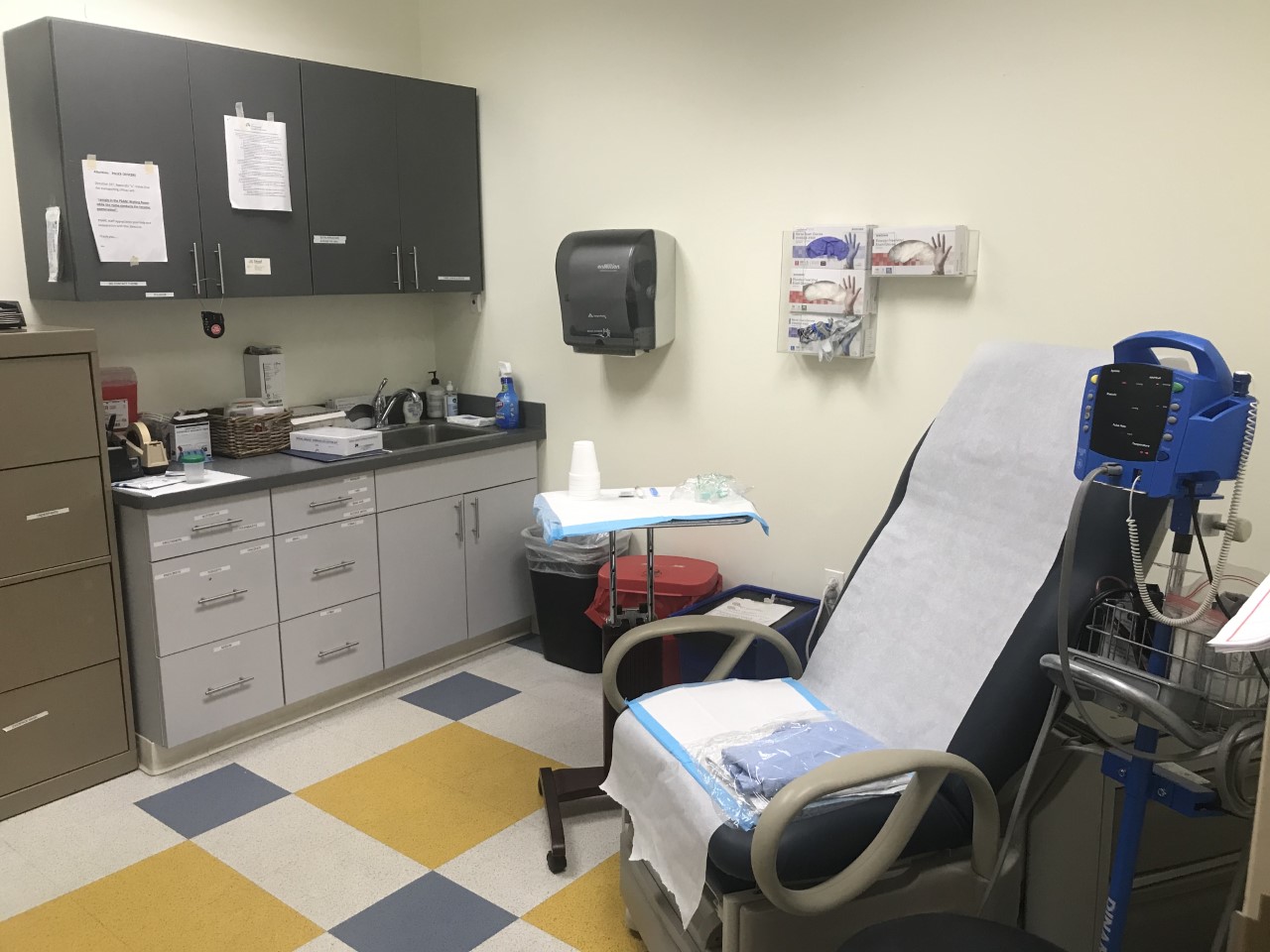CNHPs Philadelphia Sexual Assault Response Center (PSARC) offers Trauma-Informed Care
April 21, 2022
 Providing service to the community for the last twelve years, Drexel University’s College of Nursing and Health Professions Philadelphia Sexual Assault Response Center (PSARC) strives to support trauma-informed and patient-centered care as a primary interface for adults and adolescents seeking medical attention following an acute sexual assault. Located within the Philadelphia Safety Collaborative building in northeast Philadelphia, PSARC’s team of forensically trained sexual assault nurse examiners (SANEs) provides care to an average of 415 patients annually. "Having access to a resource like PSARC is often the first open door many of our patients encounter and leads to referrals to many different stabilizing resources," shared Allison Denman, MS, the Center’s clinical director and nurse manager. This service is 24/7/365, regardless of holidays, inclement weather or global pandemic.
Providing service to the community for the last twelve years, Drexel University’s College of Nursing and Health Professions Philadelphia Sexual Assault Response Center (PSARC) strives to support trauma-informed and patient-centered care as a primary interface for adults and adolescents seeking medical attention following an acute sexual assault. Located within the Philadelphia Safety Collaborative building in northeast Philadelphia, PSARC’s team of forensically trained sexual assault nurse examiners (SANEs) provides care to an average of 415 patients annually. "Having access to a resource like PSARC is often the first open door many of our patients encounter and leads to referrals to many different stabilizing resources," shared Allison Denman, MS, the Center’s clinical director and nurse manager. This service is 24/7/365, regardless of holidays, inclement weather or global pandemic.
Sexual Assault Nurse Examiners are a special category of forensic nurse examiners who are experts in creating a safe patient environment. “Each nurse must undergo a nationally accredited, 40-hour didactic course, clinical training and clinical preceptorship with an experienced SANE.” PSARC’s team also trains in providing a trauma-informed clinical environment, forensic evidence collection and photography, courtroom testimony and many other pertinent topics."
 Trauma-informed care is among PSARCs highest priorities. “We want to make sure our patients receive information throughout the process and are encouraged to provide feedback every step of the way with the SANE in regards to consent,” Denman explained. Among other things, nurse examiners discuss different options for reporting the crime and review resources for advocacy support through the investigative and prosecutorial process. “Especially in a traumatic state, it can be very difficult for patients to open up to just anyone, but we are trained to enable patient autonomy and provide the patients with the ability to make informed decisions.” Sometimes this also includes outreach to the patient care system, in the event that caretakers or family are present with the patient's consent. Denman conveyed that they provide evidence-based care and evidence collection in a way that enables the patient to be involved and have direction over clinical and investigative resources.
Trauma-informed care is among PSARCs highest priorities. “We want to make sure our patients receive information throughout the process and are encouraged to provide feedback every step of the way with the SANE in regards to consent,” Denman explained. Among other things, nurse examiners discuss different options for reporting the crime and review resources for advocacy support through the investigative and prosecutorial process. “Especially in a traumatic state, it can be very difficult for patients to open up to just anyone, but we are trained to enable patient autonomy and provide the patients with the ability to make informed decisions.” Sometimes this also includes outreach to the patient care system, in the event that caretakers or family are present with the patient's consent. Denman conveyed that they provide evidence-based care and evidence collection in a way that enables the patient to be involved and have direction over clinical and investigative resources.
Patients may not know their options when deciding to report the assault, but each patient, regardless of their choice to report it anonymously or for investigative collaboration, receives support and free urgent medical care services. Beyond medical care, PSARC’s team also understands the complex needs of individuals requiring social service support after a traumatic event. “We offer on-site language translation services, referral to advocacy and counseling services and assistance in collaborating emergency housing resources. These are just a few considerations of community care available for patients receiving forensic medical services,” clarified Denman.
PSARC is offering a co-op for the first time. The focus of the program is to help students understand the vast intricacies of operating a non-profit clinic, particularly aimed at a very niche population of patients with very specific, forensic care needs. While students do not directly interface with patients during a live exam for legal restrictions and trauma considerations of this patient population, they do work with the clinical director in assisting in research, grant tracking, courtroom accompaniment, community outreach and engagement, and more. “We know that there is a major gap in understanding the role of the forensic nurse among the general public. Connecting our clinic to a co-op opportunity is just one key to bridging that gap. Even if students do not make clinical forensics their career, they will at least know what critical community resources exist in the event that they ever care for a patient who chooses to disclose sexual assault to them in the caretaking environment."
For more information about PSARC, please contact Allison Denman at ald376@drexel.edu.